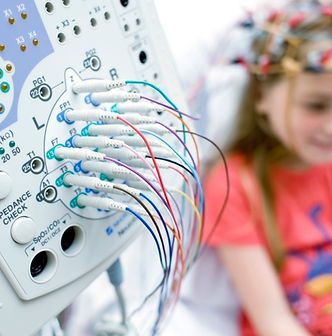“Exploring the Frontal Lobe: Function and its Connection to Autism”
- Reign-Bow

- Feb 15, 2024
- 2 min read
Nestled at the front of the brain, the frontal lobe plays a pivotal role in various cognitive functions and personality expression. In this blog post, we’ll delve into the fascinating world of the frontal lobe, understanding its primary functions and exploring the intricate relationship it may have with autism spectrum disorders.
Function of the Frontal Lobe:
1. Executive Functions:
The frontal lobe is often referred to as the “executive center” of the brain. It governs high-level cognitive processes, including reasoning, problem-solving, and decision-making.
2. Personality Expression and Emotion Regulation:
Personality traits and emotional responses find their roots in the frontal lobe. It helps regulate emotions, allowing individuals to respond appropriately to various situations.
3. Motor Skills and Movement:
The motor cortex within the frontal lobe coordinates voluntary movements, contributing to the execution of precise and controlled actions.
4. Speech Production and Language Processing:
Broca’s area, situated in the left frontal lobe, is crucial for speech production and language processing. It enables fluent communication and linguistic comprehension.
Frontal Lobe and Autism:
While the frontal lobe is not the sole contributor to autism spectrum disorders, research suggests that alterations in this region may play a role in certain characteristics associated with autism:
1. Executive Dysfunction:
Individuals with autism often exhibit challenges in executive functions controlled by the frontal lobe. This may manifest as difficulties in planning, organizing, and adapting to changing circumstances.
2. Social and Emotional Processing:
Impairments in the frontal lobe could contribute to challenges in social interactions and emotional regulation observed in autism. This may impact an individual’s ability to understand and respond appropriately to social cues.
3. Repetitive Behaviors:
Some studies propose a connection between abnormalities in the frontal lobe and the manifestation of repetitive behaviors often observed in individuals with autism.
Conclusion:
The frontal lobe, with its intricate functions, serves as a command center for various aspects of human behavior. While research continues to unravel the complexities of autism spectrum disorders, understanding the potential role of the frontal lobe sheds light on the neurological underpinnings of certain characteristics associated with autism. As science advances, further insights into the connections between brain regions and autism may pave the way for innovative approaches to support individuals on the autism spectrum.





Comments